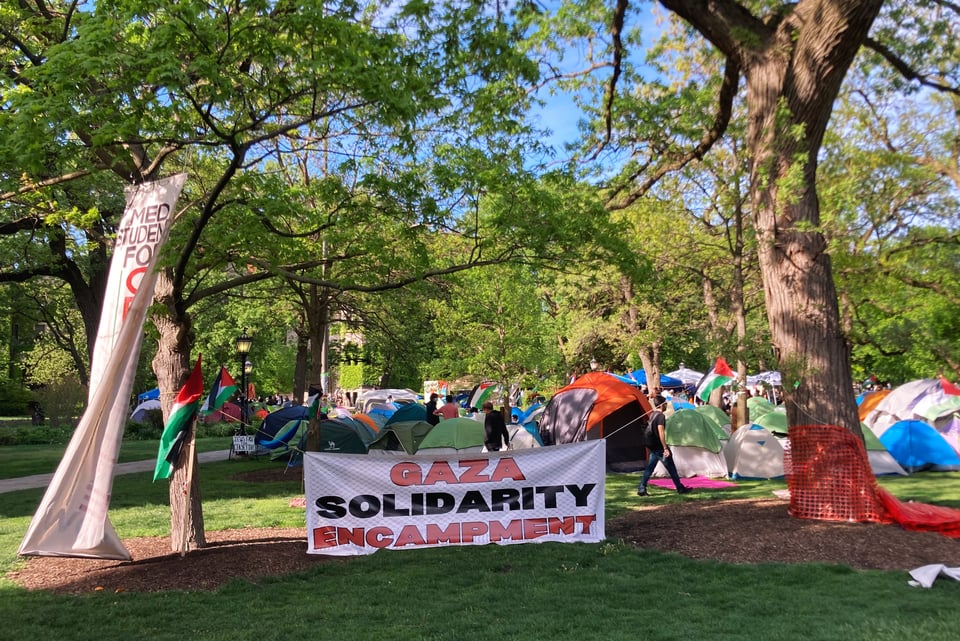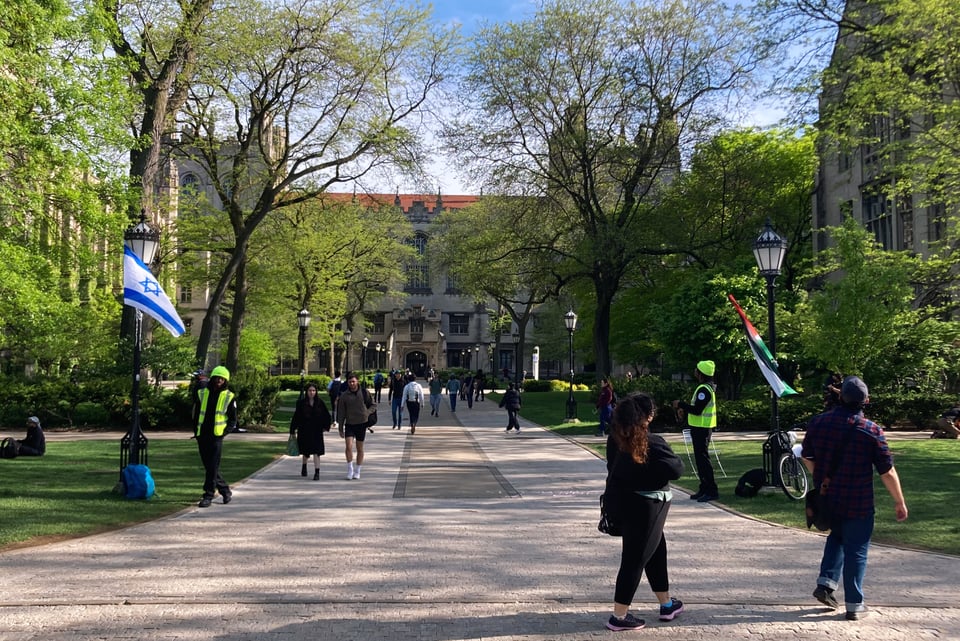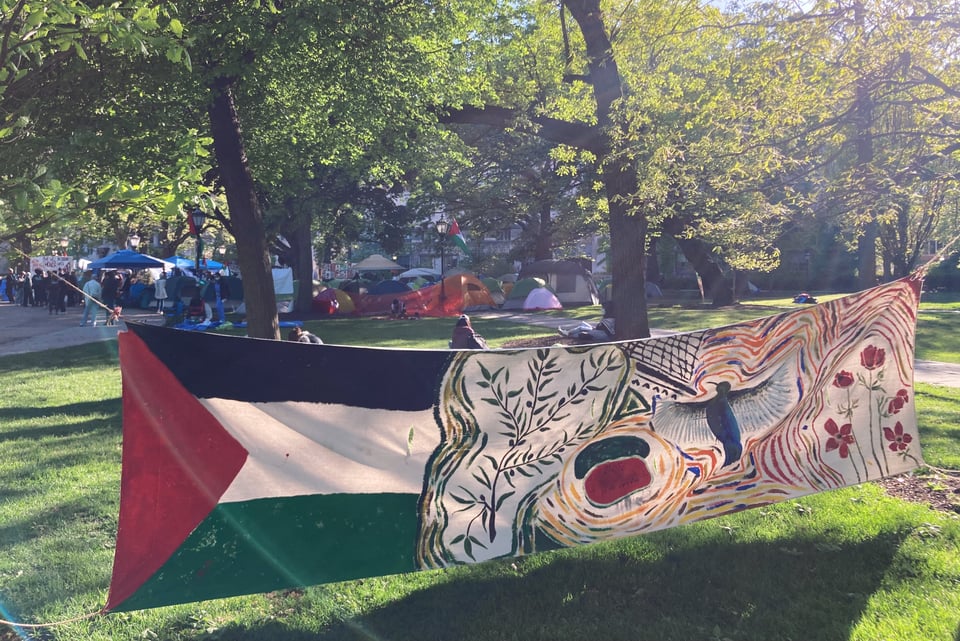Public and Humble Presence
Observations from a pro-Palestine encampment
I spent Thursday night out of town and when I returned to our neighborhood on Friday, I noticed helicopters circling the University of Chicago campus. A quick internet search revealed an escalation between pro-Palestinian protestors and a group of counter-protestors. The university newspaper reported that the two groups had to be kept separate by police in riot gear.

Our apartment is a short bike ride from campus, so an hour or two later I rode over to the quad where the protestors have set up camp for the past week or so. Things were quiet when I arrived and I spent about an hour doing my best to watch and listen. A few observations:
Despite the recent clash between protestors and counter-protestors, the quad was quiet during my visit. There were probably a hundred or so people in the encampment, all engaged in a variety of mundane activities: reading, talking, organizing supplies, etc.
I noticed two Jewish students in a strained conversation with a protestor who, eventually shrugged and walked away. The two students shook their heads and also walked away. I have no idea what they were talking about, but that quick vignette – so human – was kind of heartbreaking.
Groups have hung Palestinian and Israeli flags on light poles throughout the quad. I watched two young white people walk toward the encampment and one, the man, make an obvious Sieg Heil salute at the Israeli flag. Looking around, I couldn’t see that anyone else had noticed it except for the young woman with him who just chuckled.
There were signs and banners all over. The most visible demands seem to be that the university reveal its investments connected to Israel and divest from them. There were also repeated calls for repair, though I couldn’t puzzle out what that would involve.
Every one of the many members of the university’s private security team I could see were Black. Most of the police officers were also Black. Most of the protestors (and, I assume, counter-protestors) were not.
The protestors are well-organized, with a welcome tent for newcomers, a couple of first aid stations, and a seemingly clear commitment to stay put. Whatever one thinks about their demands or how they’re going about making them, I always find myself grateful for young people willing to disrupt their lives for the pursuit of justice. I hope those commitments will remain after graduation.

This was the second time I’ve visited the campus protest. The war in Gaza is not central to my vocational life, but there are a couple of reasons I’ve been compelled as a Christian to bear witness in that space. First, the narratives about the war are often simplistic, relying on clearly identified good and bad sides. This has been true about the primary actors in the war as well as those protesting and counter-protesting. The nuance which is required for humans to be human as well as to actually approach the truth gets lost in these shallow stories. Standing in the quad, listening to the conversations, watching the stress, feeling the emotions– these are the sorts of embodied acts which push me away from too-easy explanations.
The second reason rose to my attention when I heard my name – “Pastor David!” – called by a young, thoughtful graduate student. A Christian involved in campus ministry, this student has been devastated by the violence and death in Gaza and has worked to bring attention to the war in his Christian circles. Too often he has been met with indifference or defensiveness. Instead of voicing solidarity with those who suffer, too many of us have appealed to the real complexities of the situation to justify our silence. But I don’t think this student is looking for Christian leaders who have all of the answers or who are able to untangle what generations of brilliant people have been stymied by. Rather, he and others are wondering if our churches are willing to grieve with those who grieve, to advocate for those who suffer, to inconvenience our agendas for the good of our neighbors.

It seems to me that, once again, our world has provided the grievous circumstances for God’s people to make ourselves publicly and humbly present. There is a generation inside and outside of our churches wondering if God has anything to say at this moment. We don’t need to come with the answers, solutions, or explanations. But in Jesus, there is a word. There is always a Word.
The Race Against Gun Violence
We’re about a month away from the race and you’ve already helped me reach 35% of my goal. Thank you! If you’ve appreciated this little free newsletter, would you consider donating?